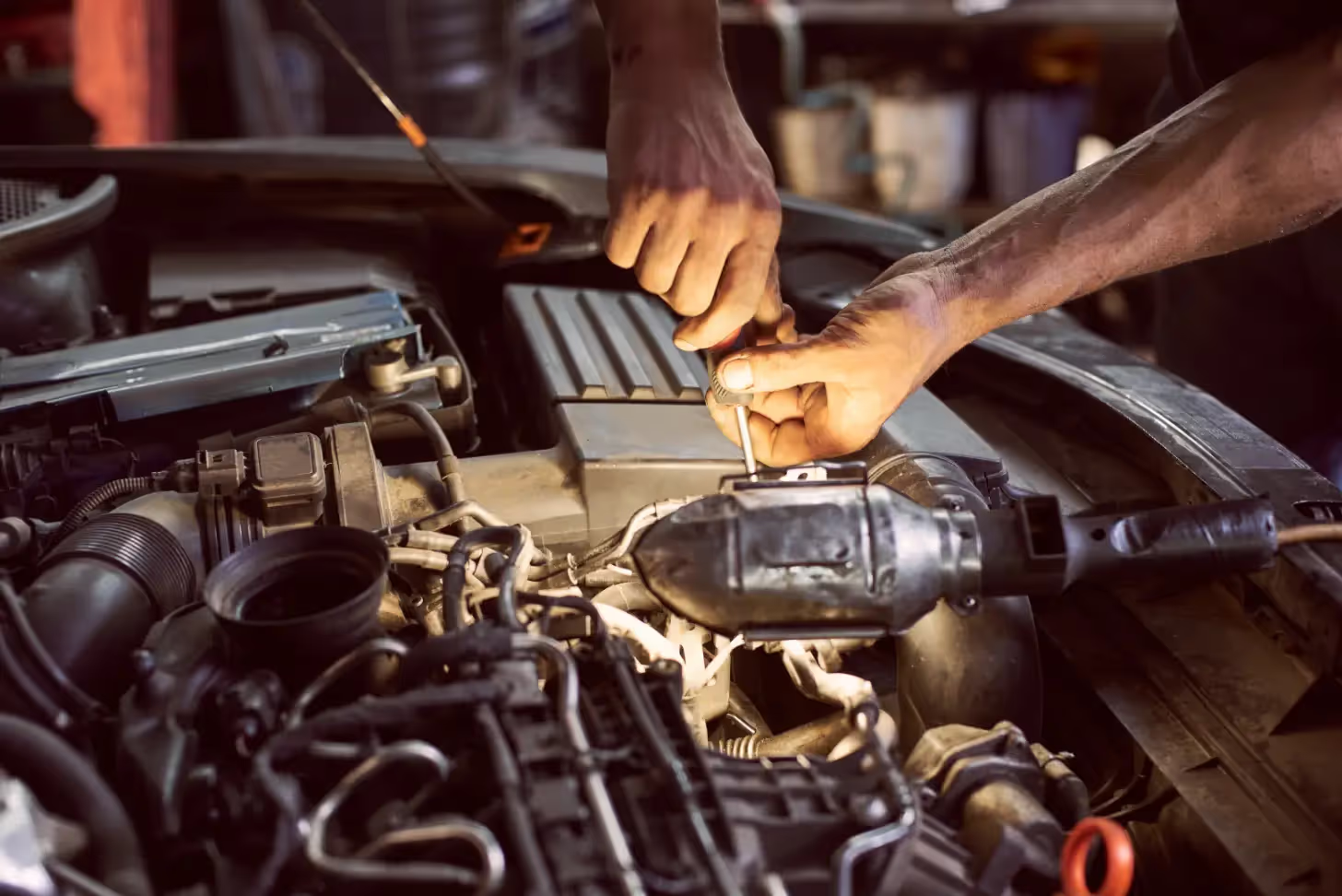Winter-Proofing Your Lift Gate: Preventative Maintenance Tips for Cold Weather

When winter rolls in, your lift gate faces some of the year's harshest conditions. Freezing temperatures, snow, ice, and road salt can all affect its hydraulic system, electrical connections, and mechanical components. Without proper preventative maintenance, your lift gate may struggle to operate—or worse, fail—leading to costly delays and repairs.
This guide will cover essential winter-proofing techniques to keep your lift gate functioning efficiently, even in the harshest conditions.
How Cold Weather Affects Lift Gates
Winter isn’t just about lower temperatures but how those temperatures interact with your lift gate’s components. Here are some of the biggest issues caused by cold weather:
- Thickened Hydraulic Fluid: Cold temperatures can make hydraulic fluid more viscous, slowing lift operation and putting stress on the pump.
- Frozen Moving Parts: Moisture can freeze around pivot points, hinges, and cylinders, preventing smooth movement.
- Electrical Issues: Battery efficiency drops in cold weather, and corroded connections can disrupt power to the liftgate.
- Rust and Corrosion: Road salt speeds up corrosion, eating away at metal components.
- Ice Buildup: Snow and ice accumulation can block sensors, jam moving parts, and cause slippery conditions.
Now that we understand the risks let’s go over preventative maintenance steps to keep your lift gate winter-ready.
1. Inspect and Lubricate Moving Parts
A well-lubricated lift gate is a reliable lift gate—especially in winter. Cold weather makes metal components more likely to seize, and without proper lubrication, you’re looking at unnecessary wear and tear.
- Check all pivot points, hinges, and rollers for rust or stiffness.
- Apply a cold-weather lubricant that won’t harden in freezing conditions. Avoid thick grease, which can become sluggish in the cold.
- Look for signs of metal fatigue—small cracks or deformations could worsen in low temperatures.
Pro Tip: Perform this inspection at least once a week during winter.
2. Use the Right Hydraulic Fluid
One of the most common causes of slow or malfunctioning lift gates in winter is improper hydraulic fluid. When fluid thickens due to the cold, it reduces system efficiency, forcing the pump to work harder.
- Switch to a low-temperature hydraulic fluid designed for winter operation.
- Check fluid levels regularly and top off as needed.
- Look for leaks—cold weather can cause gaskets and seals to shrink, leading to hydraulic leaks.
If you notice delayed liftgate operation, whining noises from the pump, or erratic movement, your hydraulic fluid may be too thick. Don’t wait—change it out before it causes more significant problems.
3. Protect the Electrical System
Your lift gate’s electrical system is especially vulnerable to winter conditions. Batteries lose efficiency in the cold, and corrosion on electrical terminals can cause intermittent failures.
- Clean battery terminals and coat them with dielectric grease to prevent corrosion.
- Ensure all wiring connections are tight and free of moisture. Water that seeps into electrical components can freeze, causing shorts.
- Keep the liftgate battery fully charged. Cold temperatures drain battery life quickly.
A simple test: If your liftgate slows down or struggles to operate, check your battery voltage first—it could be undercharged or failing.
4. Prevent Ice and Snow Buildup
Ice and snow make your lift gate harder to use and can cause actual damage. Ice can block sensors, cause slip hazards, and jam moving parts.
- Clear off snow and ice before use. Letting it build up can result in frozen hinges and hydraulic components.
- Apply a silicone spray to rubber seals to prevent them from freezing and sticking.
- Park your truck in a covered area or heated garage.
Heaters or de-icing sprays can help keep your lift gate functional in extreme conditions.
5. Inspect the Lift Gate Motor and Pump
Your lift gate motor and hydraulic pump work harder in cold weather. A weak or failing motor will struggle even more in freezing temperatures.
- Listen for unusual noises during operation—grinding or whining sounds may indicate motor strain.
- Ensure the pump is primed and doesn’t have air bubbles in the system.
- Check for slow operation. If your liftgate takes longer than usual to raise or lower, the motor could be wearing out.
Regular preventative maintenance can extend the lifespan of your lift gate motor and prevent unexpected failures.
6. Protect the Lift Gate Platform from Corrosion
Your lift gate’s platform takes a beating in winter, especially from road salt and moisture.
- Inspect the platform for cracks, rust, or warping. Any damage could worsen under heavy loads.
- Apply an anti-slip coating to prevent accidents in icy conditions.
- Wash off road salt regularly to slow down corrosion.
If left untreated, minor rust spots can quickly become structural issues, so stay on top of platform maintenance.
7. Test the Lift Gate Regularly
Don’t wait until you're on the job to discover a problem. A quick daily function check ensures your liftgate is ready to go when you need it.
- Raise and lower the lift gate a few times before heading out.
- Check for slow movement, unusual noises, or jerky operation.
- Address minor issues before they turn into major breakdowns.
Spending a few minutes on maintenance daily can save hours of downtime in the long run.
Conclusion
Winter can be harsh on lift gates, but with the proper preventative maintenance, you can avoid costly repairs and unexpected downtime. By lubricating moving parts, switching to cold-weather hydraulic fluid, protecting electrical connections, preventing ice buildup, and regularly inspecting your system, you’ll keep your lift gate running smoothly all season long.
Don’t wait until it's too late—schedule your winter maintenance now and keep your fleet operational, no matter how cold it gets in Chicago!
